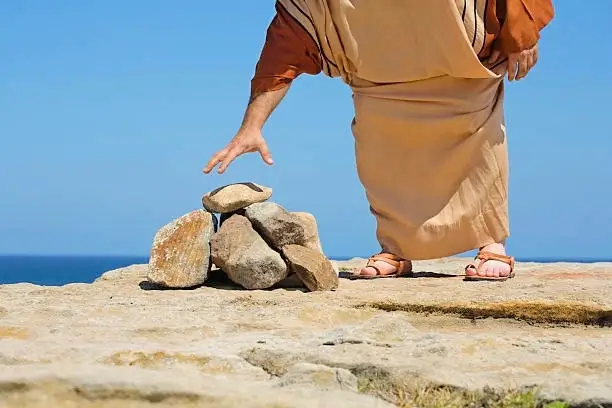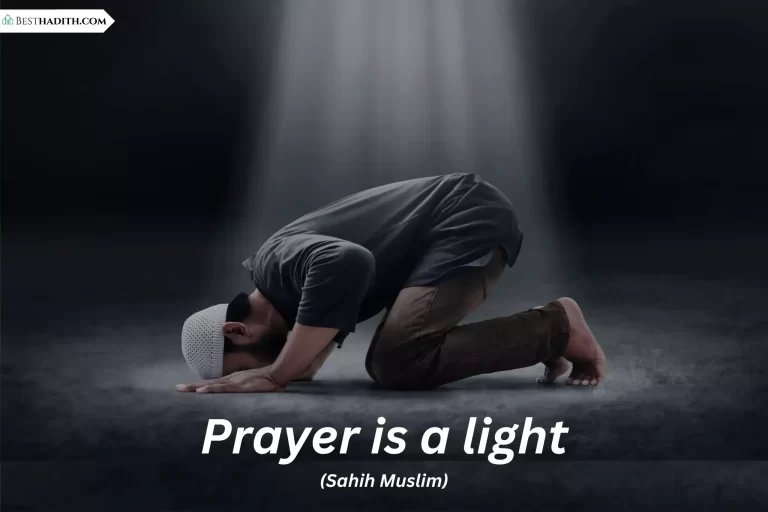12 Hadith About Zina and its Forgiveness In Islam

Within the vast teachings of Islam, the concept of Zina, encompassing illegal sexual relations, holds significant importance. Delving into the depth of this subject, Islamic teachings, encompassing a compilation of sayings and actions attributed to Prophet Muhammad (ﷺ), offer 12 insightful perspectives regarding Zina. There are many hadiths on Zina but these 12 hadiths about Zina are so important to know everyone. These teachings illuminate the gravity of engaging in such actions, detailing consequences and punishment while also emphasizing the avenues of repentance and forgiveness. These insights range from discussions about the inheritance rights of children born from Zina to the severity of punishment and the broader definition of Zina, encompassing not just physical actions but also thoughts and intentions.
Authentic Hadith About Zina In Arabic And English
the Messenger of Allah(ﷺ) said:
“Any man who fornicates with a free woman, or a slave woman, then the child born from Zina does not inherit, nor is it inherited from.”
(Jami` at-Tirmidhi 2113)
In Arabic
أَنَّ رَسُولَ اللَّهِ صلى الله عليه وسلم قَالَ “ أَيُّمَا رَجُلٍ عَاهَرَ بِحُرَّةٍ أَوْ أَمَةٍ فَالْوَلَدُ وَلَدُ زِنَا لاَ يَرِثُ وَلاَ يُورَثُ ” . قَالَ أَبُو عِيسَى وَقَدْ رَوَى غَيْرُ ابْنِ لَهِيعَةَ هَذَا الْحَدِيثَ عَنْ عَمْرِو بْنِ شُعَيْبٍ . وَالْعَمَلُ عَلَى هَذَا عِنْدَ أَهْلِ الْعِلْمِ أَنَّ وَلَدَ الزِّنَا لاَ يَرِثُ مِنْ أَبِيهِ.
Narrated ‘Ubadah bin As-Samit: The Messenger of Allah (ﷺ) said:
“Take from me. For Allah has a way made for them : For the married person who commits adultery with a married person is one hundred lashes, then stoning. And for the virgin who commits adultery with a virgin is one hundred lashes and banishment for a year.”
(Jami` at-Tirmidhi 1434)
عَنْ عُبَادَةَ بْنِ الصَّامِتِ، قَالَ قَالَ رَسُولُ اللَّهِ صلى الله عليه وسلم “ خُذُوا عَنِّي فَقَدْ جَعَلَ اللَّهُ لَهُنَّ سَبِيلاً الثَّيِّبُ بِالثَّيِّبِ جَلْدُ مِائَةٍ ثُمَّ الرَّجْمُ وَالْبِكْرُ بِالْبِكْرِ جَلْدُ مِائَةٍ وَنَفْىُ سَنَةٍ ” .
Hadith About Zina Of The Eyes
The Prophet (ﷺ) said:
“Every eye commits adultery, and when the woman uses perfume and she passes by a gathering, then she is like this and that.'” Meaning an adulteress.
(Jami` at-Tirmidhi 2786)
In Arabic
عَنِ النَّبِيِّ صلى الله عليه وسلم قَالَ “ كُلُّ عَيْنٍ زَانِيَةٌ وَالْمَرْأَةُ إِذَا اسْتَعْطَرَتْ فَمَرَّتْ بِالْمَجْلِسِ فَهِيَ كَذَا وَكَذَا يَعْنِي زَانِيَةً ” . وَفِي الْبَابِ عَنْ أَبِي هُرَيْرَةَ . قَالَ أَبُو عِيسَى هَذَا حَدِيثٌ حَسَنٌ صَحِيحٌ .
Abu Hurairah (Radi Allahu Anhu) said: The Prophet (ﷺ) said,
“Allah has written the very portion of Zina which a man will indulge in. There will be no escape from it. The Zina of the eye is the (lustful) look, the Zina of the ears is the listening (to voluptuous songs or talk), the Zina of the tongue is (the licentious) speech, the Zina of the hand is the (lustful) grip, the Zina of the feet is the walking (to the place where he intends to commit Zina), the heart yearns and desires and the private parts approve all that or disapprove it.”
[Al-Bukhari and Muslim] (Riyad as-Salihin 1622)
In Arabic
وعن أبي هريرة رضي الله عنه أن النبي صلى الله عليه وسلم قال: “كُتب على ابن آدم نصيبه من الزنا مدرك ذلك لا محالة: العينان زناهما النظر، والأذنان زناهما الاستماع، واللسان زناه الكلام، واليد زناها البطش، والرجل زناها الخطا، والقلب يهوى ويتمنى، ويصدق ذلك الفرج أو يكذبه”.
Hadith About Forgiveness Of Zina In Islam

It is narrated on the authority of Abu Huraira: The Prophet (ﷺ) said,
A fornicator who fornicates is not a believer as long as he commits fornication, and no one who steals is a believer as long as he commits theft, and no one who drinks wine is a believer as long as he drinks it, and repentance may be accepted after that.
(Sahih Muslim 57 f)
عَنْ أَبِي هُرَيْرَةَ، أَنَّ النَّبِيَّ صلى الله عليه وسلم قَالَ “ لاَ يَزْنِي الزَّانِي حِينَ يَزْنِي وَهُوَ مُؤْمِنٌ وَلاَ يَسْرِقُ حِينَ يَسْرِقُ وَهُوَ مُؤْمِنٌ وَلاَ يَشْرَبُ الْخَمْرَ حِينَ يَشْرَبُهَا وَهُوَ مُؤْمِنٌ وَالتَّوْبَةُ مَعْرُوضَةٌ بَعْدُ ” .
Hadith About Zina Punishment
The Messenger of Allah (ﷺ) said:
“Receive from me (this revelation), receive from me (this revelation). Allah has ordained a way for those women (unmarried females who committed adultery). When an unmarried man, commits adultery with an unmarried woman, they should receive one hundred lashes and be exiled for a year. If they (fornicate while they) were married, they shall receive hundred lashes and be stoned to death. Reported by Muslim.
(Sahih Muslim 1690)
قَالَ رَسُولُ اَللَّهِ - صلى الله عليه وسلم -{ خُذُوا عَنِّي, خُذُوا عَنِّي, فَقَدْ جَعَلَ اَللَّهُ لَهُنَّ سَبِيلاً, اَلْبِكْرُ بِالْبِكْرِ جَلْدُ مِائَةٍ, وَنَفْيُ سَنَةٍ, وَالثَّيِّبُ بِالثَّيِّبِ جَلْدُ مِائَةٍ, وَالرَّجْمُ } رَوَاهُ مُسْلِمٌ. 1 .
Narrated Abdullah ibn Abbas:
Ma’iz ibn Malik came to the Prophet (ﷺ) and admitted fornication twice. But he drove him away. He then came and admitted to fornication twice. But he drove him away. He then came and admitted fornication twice. He (the Prophet) said: You have testified to yourself four times. Take him away and stone him to death.
(Sunan Abi Dawud 4426)
In Arabic
عَنِ ابْنِ عَبَّاسٍ، قَالَ جَاءَ مَاعِزُ بْنُ مَالِكٍ إِلَى النَّبِيِّ صلى الله عليه وسلم فَاعْتَرَفَ بِالزِّنَا مَرَّتَيْنِ فَطَرَدَهُ ثُمَّ جَاءَ فَاعْتَرَفَ بِالزِّنَا مَرَّتَيْنِ فَقَالَ “ شَهِدْتَ عَلَى نَفْسِكَ أَرْبَعَ مَرَّاتٍ اذْهَبُوا بِهِ فَارْجُمُوهُ ” .
‘Aishah narrated that the Messenger of Allah(ﷺ) said:
“If a slave woman commits fornication then whip her, and if she commits fornication then whip her, and if she commits fornication then whip her, then sell her even if that is for a rope.”
(Sunan Ibn Majah 2566)
In Arabic
عَائِشَةَ حَدَّثَتْهَا أَنَّ رَسُولَ اللَّهِ صلى الله عليه وسلم قَالَ “ إِذَا زَنَتِ الأَمَةُ فَاجْلِدُوهَا فَإِنْ زَنَتْ فَاجْلِدُوهَا فَإِنْ زَنَتْ فَاجْلِدُوهَا فَإِنْ زَنَتْ فَاجْلِدُوهَا ثُمَّ بِيعُوهَا وَلَوْ بِضَفِيرٍ ” .
Jabir bin Abdullah narrated that: The Prophet (ﷺ) said,
“Whichever slave gets married without the permission of his owner, then he is a fornicator.”
(Jami` at-Tirmidhi 1111)
In Arabic
عَنْ جَابِرِ بْنِ عَبْدِ اللَّهِ، عَنِ النَّبِيِّ صلى الله عليه وسلم قَالَ “ أَيُّمَا عَبْدٍ تَزَوَّجَ بِغَيْرِ إِذْنِ سَيِّدِهِ فَهُوَ عَاهِرٌ ” .
Abu Hurairah (May Allah be pleased with him) said:
I heard the Messenger of Allah (ﷺ) saying, “He who accuses his slave of Zina will receive the punishment (Hadd) of slander on the Day of Resurrection, unless the accusation of Zina was true.”
(Riyad as-Salihin 1563)
In Arabic
وعنه قال: سمعت رسول الله صلى الله عليه وسلم يقول: “من قذف مملوكه بالزنا يقام عليه الحد يوم القيامة، إلا أن يكون كما قال” ((متفق عليه)).
The Messenger of Allah (ﷺ) said:
“If a woman kills someone deliberately, she should not be killed until she delivers what is in her womb, if she is pregnant, and until the child’s sponsorship is guaranteed. And if a woman commits illegal sex, she should not be stoned until she delivers what is in her womb and until her child’s sponsorship is guaranteed.
(Sunan Ibn Majah 2694)
In Arabic
أَنَّ رَسُولَ اللَّهِ صلى الله عليه وسلم قَالَ “ الْمَرْأَةُ إِذَا قَتَلَتْ عَمْدًا لاَ تُقْتَلُ حَتَّى تَضَعَ مَا فِي بَطْنِهَا إِنْ كَانَتْ حَامِلاً وَحَتَّى تُكَفِّلَ وَلَدَهَا وَإِنْ زَنَتْ لَمْ تُرْجَمْ حَتَّى تَضَعَ مَا فِي بَطْنِهَا وَحَتَّى تُكَفِّلَ وَلَدَهَا ” .

Abdullah b. Buraida reported on the authority of his father that Ma’iz b. Malik al-Aslami came to Allah’s Messenger (ﷺ) and said:
Allah’s Messenger, I have wronged myself; I have committed adultery and I earnestly desire that you should purify me. He turned him away. On the following day, he (Ma’iz) again came to him and said: Allah’s Messenger, I have committed adultery. Allah’s Messenger (ﷺ) turned him away for the second time, and sent him to his people saying: Do you know if there is anything wrong with his mind. They denied of any such thing in him and said: We do not know him but as a wise good man among us, so far as we can judge. He (Ma’iz) came for the third time, and he (the Holy Prophet) sent him as he had done before. He asked about him and they informed him that there was nothing wrong with him or with his mind. When it was the fourth time, a ditch was dug for him and he (the Holy Prophet) pronounced judg- ment about him and he wis stoned. He (the narrator) said: There came to him (the Holy Prophet) a woman from Ghamid and said: Allah’s Messenger, I have committed adultery, so purify me. He (the Holy Prophet) turned her away. On the following day she said: Allah’s Messenger, Why do you turn me away? Perhaps, you turn me away as you turned away Ma’iz. By Allah, I have become pregnant. He said: Well, if you insist upon it, then go away until you give birth to (the child). When she was delivered she came with the child (wrapped) in a rag and said: Here is the child whom I have given birth to. He said: Go away and suckle him until you wean him. When she had weaned him, she came to him (the Holy Prophet) with the child who was holding a piece of bread in his hand. She said: Allah’s Apostle, here is he as I have weaned him and he eats food. He (the Holy Prophet) entrusted the child to one of the Muslims and then pronounced punishment. And she was put in a ditch up to her chest and he commanded people and they stoned her. Khalid b Walid came forward with a stone which he flung at her head and there spurted blood on the face of Khalid and so he abused her. Allah’s Apostle (ﷺ) heard his (Khalid’s) curse that he had huried upon her. Thereupon he (the Holy Prophet) said: Khalid, be gentle. By Him in Whose Hand is my life, she has made such a repentance that even if a wrongful tax-collector were to repent, he would have been forgiven. Then giving command regarding her, he prayed over her and she was buried.
(Sahih Muslim 1695 b)
In Arabic
وَحَدَّثَنَا أَبُو بَكْرِ بْنُ أَبِي شَيْبَةَ، حَدَّثَنَا عَبْدُ اللَّهِ بْنُ نُمَيْرٍ، ح وَحَدَّثَنَا مُحَمَّدُ بْنُ عَبْدِ، اللَّهِ بْنِ نُمَيْرٍ – وَتَقَارَبَا فِي لَفْظِ الْحَدِيثِ – حَدَّثَنَا أَبِي، حَدَّثَنَا بَشِيرُ بْنُ الْمُهَاجِرِ، حَدَّثَنَا عَبْدُ اللَّهِ بْنُ بُرَيْدَةَ، عَنْ أَبِيهِ، أَنَّ مَاعِزَ بْنَ مَالِكٍ الأَسْلَمِيَّ، أَتَى رَسُولَ اللَّهِ صلى الله عليه وسلم فَقَالَ يَا رَسُولَ اللَّهِ إِنِّي قَدْ ظَلَمْتُ نَفْسِي وَزَنَيْتُ وَإِنِّي أُرِيدُ أَنْ تُطَهِّرَنِي . فَرَدَّهُ فَلَمَّا كَانَ مِنَ الْغَدِ أَتَاهُ فَقَالَ يَا رَسُولَ اللَّهِ إِنِّي قَدْ زَنَيْتُ . فَرَدَّهُ الثَّانِيَةَ فَأَرْسَلَ رَسُولُ اللَّهِ صلى الله عليه وسلم إِلَى قَوْمِهِ فَقَالَ ” أَتَعْلَمُونَ بِعَقْلِهِ بَأْسًا تُنْكِرُونَ مِنْهُ شَيْئًا ” . فَقَالُوا مَا نَعْلَمُهُ إِلاَّ وَفِيَّ الْعَقْلِ مِنْ صَالِحِينَا فِيمَا نُرَى فَأَتَاهُ الثَّالِثَةَ فَأَرْسَلَ إِلَيْهِمْ أَيْضًا فَسَأَلَ عَنْهُ فَأَخْبَرُوهُ أَنَّهُ لاَ بَأْسَ بِهِ وَلاَ بِعَقْلِهِ فَلَمَّا كَانَ الرَّابِعَةَ حَفَرَ لَهُ حُفْرَةً ثُمَّ أَمَرَ بِهِ فَرُجِمَ . قَالَ فَجَاءَتِ الْغَامِدِيَّةُ فَقَالَتْ يَا رَسُولَ اللَّهِ إِنِّي قَدْ زَنَيْتُ فَطَهِّرْنِي . وَإِنَّهُ رَدَّهَا فَلَمَّا كَانَ الْغَدُ قَالَتْ يَا رَسُولَ اللَّهِ لِمَ تَرُدُّنِي لَعَلَّكَ أَنْ تَرُدَّنِي كَمَا رَدَدْتَ مَاعِزًا فَوَاللَّهِ إِنِّي لَحُبْلَى . قَالَ ” إِمَّا لاَ فَاذْهَبِي حَتَّى تَلِدِي ” . فَلَمَّا وَلَدَتْ أَتَتْهُ بِالصَّبِيِّ فِي خِرْقَةٍ قَالَتْ هَذَا قَدْ وَلَدْتُهُ . قَالَ ” اذْهَبِي فَأَرْضِعِيهِ حَتَّى تَفْطِمِيهِ ” . فَلَمَّا فَطَمَتْهُ أَتَتْهُ بِالصَّبِيِّ فِي يَدِهِ كِسْرَةُ خُبْزٍ فَقَالَتْ هَذَا يَا نَبِيَّ اللَّهِ قَدْ فَطَمْتُهُ وَقَدْ أَكَلَ الطَّعَامَ . فَدَفَعَ الصَّبِيَّ إِلَى رَجُلٍ مِنَ الْمُسْلِمِينَ ثُمَّ أَمَرَ بِهَا فَحُفِرَ لَهَا إِلَى صَدْرِهَا وَأَمَرَ النَّاسَ فَرَجَمُوهَا فَيُقْبِلُ خَالِدُ بْنُ الْوَلِيدِ بِحَجَرٍ فَرَمَى رَأْسَهَا فَتَنَضَّحَ الدَّمُ عَلَى وَجْهِ خَالِدٍ فَسَبَّهَا فَسَمِعَ نَبِيُّ اللَّهِ صلى الله عليه وسلم سَبَّهُ إِيَّاهَا فَقَالَ ” مَهْلاً يَا خَالِدُ فَوَالَّذِي نَفْسِي بِيَدِهِ لَقَدْ تَابَتْ تَوْبَةً لَوْ تَابَهَا صَاحِبُ مَكْسٍ لَغُفِرَ لَهُ ” . ثُمَّ أَمَرَ بِهَا فَصَلَّى عَلَيْهَا وَدُفِنَتْ .
Conclusion
Certainly! Summing up the teachings about Zina from these 12 important sayings, it’s clear that Islam takes this seriously. These teachings, coming from Prophet Muhammad (ﷺ), show how serious it is to have illegal relationships. They also talk about what happens if someone does this and how to ask for forgiveness. It’s not just about physical actions but also about thoughts and intentions. These sayings give guidance on saying sorry and trying to make things right with Allah. They explain how important it is to take responsibility for our actions and how asking for forgiveness can help us spiritually.






